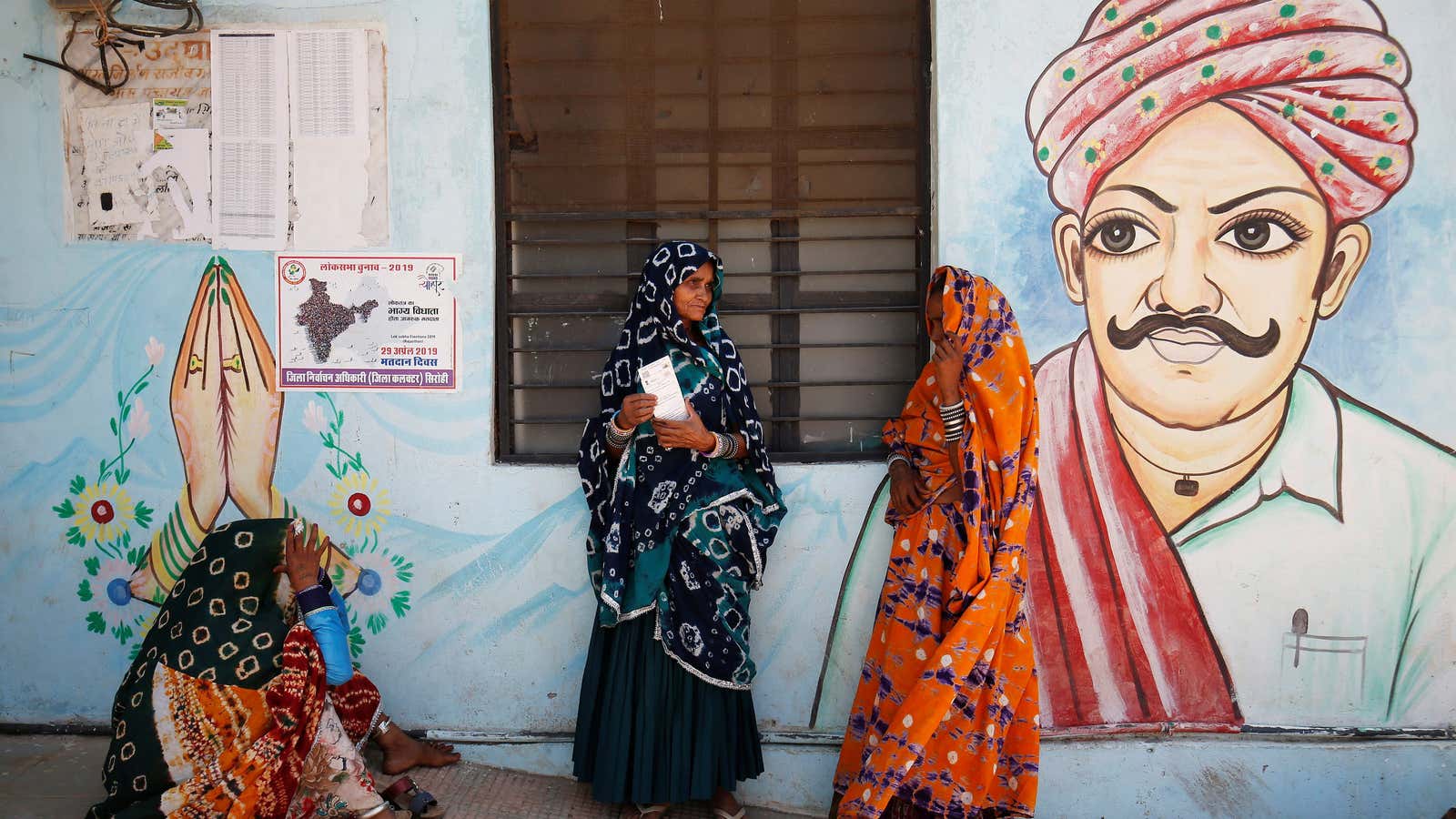Female voters may be coming out in never-seen-before numbers in India, but politics is still not a burning passion for most.
Two in every three women reported having no freedom at all with respect to political participation, a recent study by Lokniti-Centre for the Study of Developing Societies (CSDS) and German foundation Konrad Adenauer Stiftung (KAS) has found.
A dismal share—one in 10—said they had a lot of freedom. A vast majority needs to seek permission from their husbands or senior family members to go to attend political rallies or campaigns, meetings of local candidates, protests or demonstrations, or even village meetings.
The study examined women’s views on various aspects of political participation, from voting to political careers, and the barriers in the way. Over 6,348 women from 11 states—Bihar, Gujarat, Haryana, Punjab, Kerala, Mizoram, Odisha, West Bengal, Jharkhand, Telangana, and the Delhi National Capital Region—were interviewed in March and April 2019.
Only a little over a quarter of women respondents were keen on a political career, the survey results show. Six in 10 rejected the idea outright.
The main obstacle? Patriarchy.
Household responsibilities, wherein women had to take care of children, prepare family meals, and so on, and individual barriers such as a lack of interest, awareness, or education, were the next-biggest reasons. Cultural hurdles such as women not being permitted to talk to other men, the purdah system, and restrictions on mobility get in the way, too.
Moreover, a common perception was that a woman can only succeed in politics if she belongs to the upper echelons of society—upper caste and rich—and if she has a political background already.
